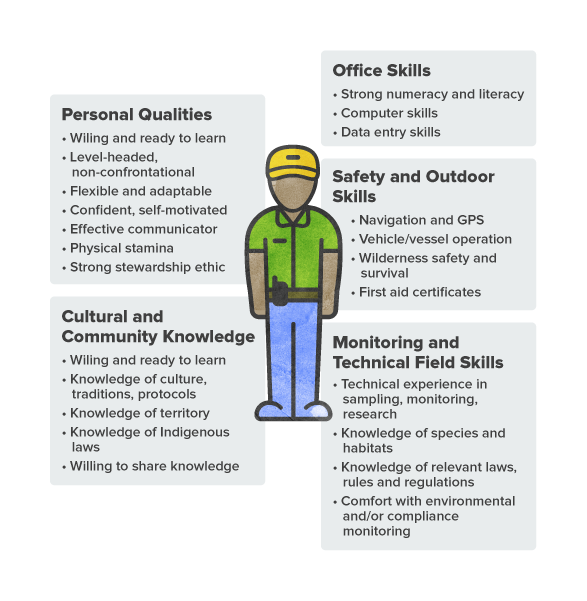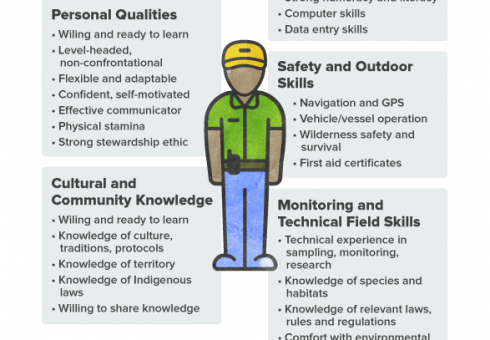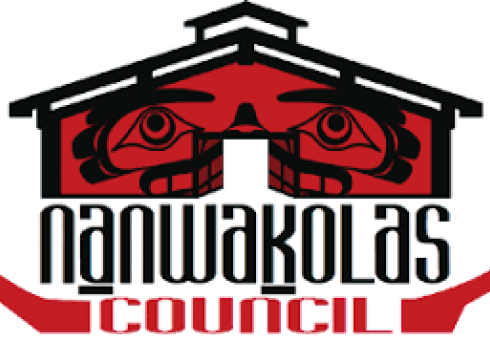Special thanks to Nanwakolas Guardians for contributing their ideas and experience to this resource.
Come Together as a Team – Align the team with the purpose of your work in the territory and understand ancestral responsibilities (“I have/we have obligations”). Formally commit to working together and succeeding as a team, regularly revisiting principles for working together effectively. Bring positive energy and a cooperative mindset to work every day.
Safety First – Affirm that safety is everyone’s individual and shared responsibility by setting and following clear safety protocols and practices without exception. Run regular safety trainings, reviews, and drills. Be sure everyone knows and understands all safety protocols and practices and voices any uncertainty. Immediately debrief and learn from any challenging or unsafe situations. Be on time, fully prepared, and physically and mentally ready to work
Plan and Prepare – Involve your team in safety planning and preparations and work planning and preparations. Help each other to implement new data collection processes and learn the methodologies. Set shared goals for the work and realistic work plans and deliverables for the day, week, or season. Involve team in regular evaluations (e.g., project milestones, end of season retrospectives, etc.).
Know Yourself and Your Team Members – Understand your own and your crew members’ strengths, weaknesses, areas of confidence, and apprehensions. Share your knowledge and experience to support others and seek out the guidance that others have to offer. Identify areas where you need more support or training and communicate where you’d like to develop your skills further. Clarify and ensure a shared understanding of team roles and distribute responsibilities to build and broaden team capacity.
Communicate – Respect should guide all communications with your team, the community, and the broader public. Build and practice a culture of communication (using strategies like checking in with each other at the start and end of day, in crew briefings, project meetings, staff meetings, etc.) to ensure the team is in alignment and to create a safe environment for the team to learn and improve together, hold different perspectives, and openly share challenges. Develop processes to share, document, and archive important information for future reference.
Celebrate Success – Recognize and celebrate success for the program, crew, and individual team members. Share information updates and achievements with the broader community, partners, and supporters. Think strategically on how to build on success, grow your impact, and maintain momentum over multiple seasons.


